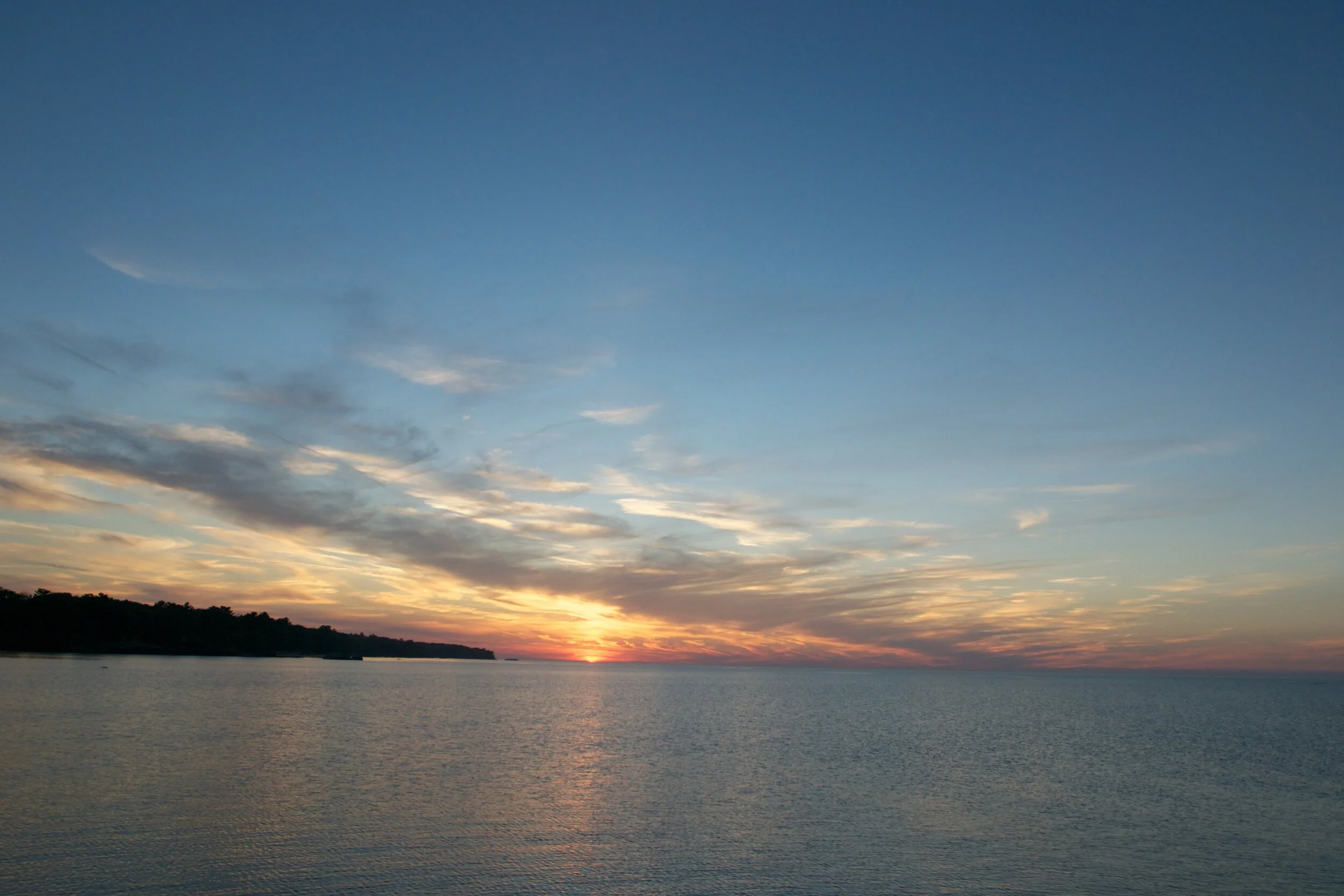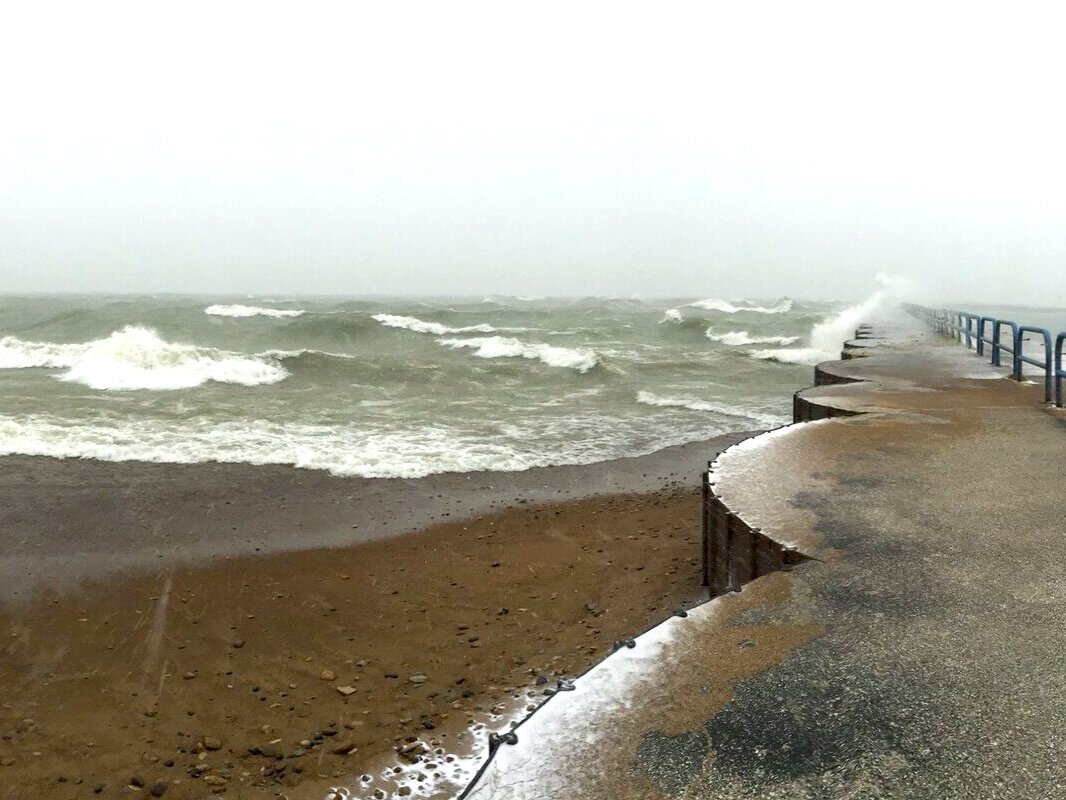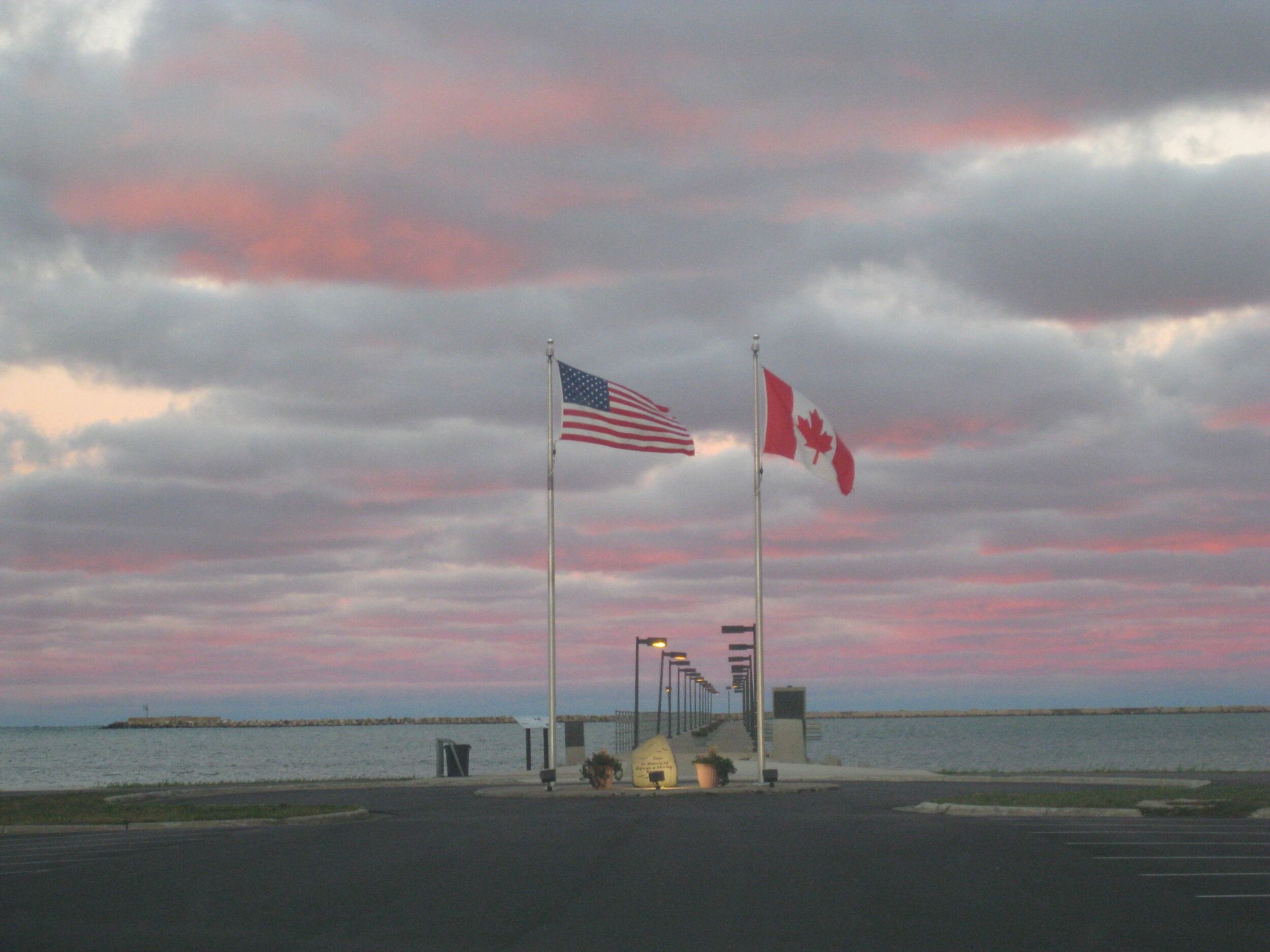If you've never seen the Great Lakes in person...
Get your sticker here and support the National Museum of the Great Lakes
If you didn’t already know, the Great Lakes are the largest freshwater system in the world.
The five Great Lakes - Superior, Huron, Michigan, Erie and Ontario - span a total surface area of 94,600 square miles and are all connected by a variety of lakes and rivers, making them the largest freshwater system in the world.
Sunset over Lake Huron in Port Austin
Most of us that grew up on the Great Lakes take them (at least a little) for granted. My experience is mostly with Lake Huron on Michigan’s Forgotten Coast, but I’ve also spent a good amount of time on Lake Michigan and Lake Superior. Sorry Eerie & Ontario, I don’t know you very well but we’re glad to have you in the group.
We Great Lakes people expect that the rest of the country knows as much about them as we do…which isn’t the case at all. When I lived in the deep South and Midwest, I found myself having to explain the Great Lakes to friends & coworkers quite often. “I mean, they’re just lakes, right?” Absolutely not. Not like any lake you’ve seen before anyway. Why not?
Size
This is an easy one to explain but I don’t think most people get it until they see them in person.
You can’t see across them. They can have beaches and crashing waves. They can feel more like an Ocean than the kind of lake most people are used to...just without the corrosive salt and sea life that can kill you. 😜
Oh yeah, you can even see them from space!
Great Lakes From Space
Fresh Water
If the Great Lakes were salty, they’d be considered seas. But instead, they’re one of the world’s greatest supplies of fresh water. What does that mean for us? It means we aren’t going to run out of drinking water any time in the foreseeable future. We know there are places in the west and midwest where water is hard to come by. That’s not a fear for us.
One of the things Michigan is known for is great beer. Great water helps make great beer! Affordable great water helps make more profitable brewers. If you’re interested in brewing on Michigan’s Forgotten Coast, find more resources and reasons why we’d be a good fit here.
Elk Street Brewery in Sandusky
Waves
“It’s not like you can surf on a lake.” I heard this often when I lived near the Atlantic coast. It’s not true of course, there can be HUGE waves on the Great Lakes. Large enough to sink ships in fact. People tend to underestimate the power of the Great Lakes, it’s always best to be cautious and respect them.
You can visit many of those ships that succumbed to the power of the lakes right here on Michigan’s Forgotten Coast. Most you will need diving gear to see, but there are a few that you can see from the surface!
Those same waves and storms that sank ships also carved out some really cool rock formations right here on Lake Huron including the iconic Turnip Rock.
Lake Huron waves in Port Sanilac
Beaches
“You must have imported the sand.” Another one I heard often. When you’re used to small lakes with muddy shores, the idea of a sugar sand beach on “just a lake” doesn’t quite compute. But, as we’ve said, a Great Lake isn’t “just a lake”. The volume of water, the weather patterns, and erosion over time have created unique coastlines.
The state of Michigan has a huge number of beaches. Both sandy and rocky coastlines, including right here on Michigan’s Forgotten Coast. Find more information & links to our beaches here.
Enjoy the beaches of Michigan’s Forgotten Coast
Weather
The Great Lakes effect the weather quite a bit. As weather systems pass over the Great Lakes, they can pick up moisture and drop it when they hit the land mass again. One of the terms we’re all familiar with here in our day to day weather forecasts is “lake effect”. I’m not sure there is another place in the US (maybe even the world) where the lakes effect the weather in the same way.
Here on Michigan’s Forgotten Coast, we’re a peninsula…surrounded by Lake Huron on the East, North and West. We don’t tend to get the amount of lake effect snow that the west side of Michigan does, but if the wind turns and comes from the north or east, we most certainly can. But, my favorite benefit of Lake Huron is in the Fall when it’s still warm from the summer and acts like a little space heater to the coastline. It really helps us ease into winter a little more nicely than the interior parts of Michigan.
Lake effect snow
Commerce
Shipping & trading on The Great Lakes helped our area become prosperous long, long ago. It’s why (along with agriculture) we have all these little cities and villages with great infrastructure. Even today, you can sit on the shoreline and watch huge freighters go by loaded with cargo.
If you want to know about the ship, where it’s from, or what it’s carrying, there’s an app for that. ShipFinder | FleetMon | VesselFinder | MyShipTracking | MarineTraffic
Lake Huron is active shipping & trade route.
Border
I always found this one a little odd, but it seems like a lot of Americans don’t know that most of the Great Lakes provide a natural border with Canada. Or for that matter, that parts of Canada are south of parts of the US. For example, from my house on Michigan’s Forgotten Coast, I have to drive about an hour due south to get to the nearest border crossing in Port Huron. In fact, Canada (Ontario) stretches all the way down to Detroit. We always find it fun to hop across the boarder for some dinner and a night out in a different country.
Canada is just across Lake Huron
Of course, there are many more reasons that differentiate the Great Lakes from other lakes. What’s your favorite?
Want to learn more about the Great Lakes?
12 Reasons Why the Great Lakes Are Better Than the Ocean - Thrillist
10 Great Lakes Fun Facts You May Not Know - Pure Michigan
Great Lakes Fast Facts - Sea Grant
Facts and Figures about the Great Lakes - United States Environmental Protection Agency
Great Facts About the Five Great Lakes - Live Science
Great Lakes Facts - Shipwreck Explorers
Largest Lake in the World & Largest Lake in the United States - Geology.com









